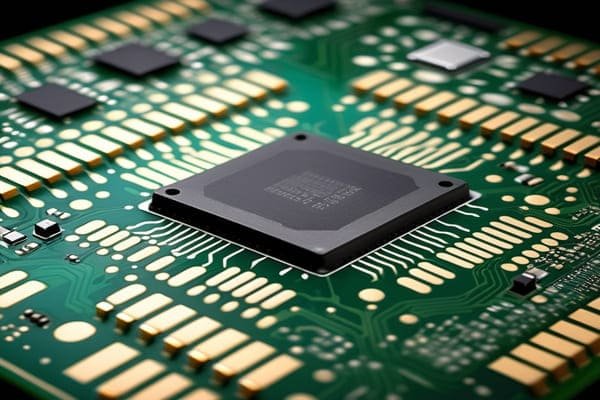How to Choose a Reliable PCB Supplier?
Have you ever faced issues with unreliable PCB suppliers, leading to project delays and increased costs? It can be incredibly frustrating when your chosen supplier fails to meet quality standards or delivery deadlines. Such experiences can disrupt your production schedule, strain your budget, and damage your business reputation. But there's a solution. By carefully evaluating and selecting the right PCB supplier, you can ensure consistent quality, timely deliveries, and a strong partnership that supports your business growth.
Choosing a reliable PCB supplier is crucial to ensure quality, timely delivery, and overall project success.
Selecting the right PCB supplier involves assessing various factors such as certifications, customer feedback, delivery cycles, and more. Let’s explore how you can evaluate and choose a reliable PCB supplier to meet your manufacturing needs effectively.
[Table of contents]
- Why Are Certifications Important When Choosing a PCB Supplier?
- How to Evaluate Customer Feedback and Reviews?
- What to Consider About the Supplier’s Delivery Cycle?
- How to Assess the Supplier’s Quality Control Processes?
- Why Is Supplier Communication Crucial?
- Conclusion
Why Are Certifications Important When Choosing a PCB Supplier?
Certifications serve as a benchmark for quality and reliability in PCB manufacturing, ensuring that suppliers adhere to industry standards and best practices.
Ensuring that a PCB supplier holds relevant certifications guarantees that they meet quality and safety standards necessary for your projects.
Key Certifications to Look For
ISO 9001
ISO 9001 certification indicates that the supplier has a robust quality management system in place, ensuring consistent product quality and continuous improvement.
UL Certification
Underwriters Laboratories (UL) certification ensures that the PCBs meet stringent safety and performance criteria, which is essential for various industries like automotive and medical devices.
IPC Standards
IPC certifications, such as IPC-A-600 and IPC-610, validate the supplier’s adherence to workmanship and quality standards specific to PCB manufacturing.
Benefits of Certified Suppliers
- Quality Assurance: Certifications ensure the supplier maintains high-quality standards.
- Reliability: Certified suppliers are more likely to deliver consistent and dependable products.
- Market Access: Certain certifications are required to enter specific markets or industries.
| Certification | Focus Area | Importance |
|---|---|---|
| ISO 9001 | Quality Management | Ensures consistent production quality |
| UL Certification | Safety and Performance | Validates reliability and safety |
| IPC Standards | Workmanship and Quality Control | Guarantees high physical quality |
How to Evaluate Customer Feedback and Reviews?
Customer feedback provides valuable insights into a supplier’s reliability, quality, and overall performance from the perspective of those who have worked with them.
Assessing customer feedback helps you gauge the supplier’s reputation and reliability based on real experiences.
Sources of Customer Feedback
Online Reviews and Ratings
Platforms like Google Reviews, Trustpilot, and industry-specific forums can offer honest opinions about the supplier’s performance.
Case Studies and Testimonials
Reviewing case studies and testimonials on the supplier’s website can provide detailed examples of their capabilities and customer satisfaction.
Direct References
Requesting references from the supplier allows you to speak directly with their past or current clients about their experiences.
What to Look For
- Consistency in Quality: Positive feedback on the quality and reliability of PCBs.
- Timeliness: Comments on the supplier’s ability to meet delivery deadlines.
- Customer Service: Feedback on responsiveness and support from the supplier’s team.
- Problem Resolution: Examples of how the supplier handles issues and resolves conflicts.
| Feedback Source | What to Assess |
|---|---|
| Online Reviews | Overall satisfaction and recurring issues |
| Testimonials | Specific strengths and success stories |
| Direct References | Detailed insights into supplier performance |
What to Consider About the Supplier’s Delivery Cycle?
The delivery cycle of a PCB supplier impacts your project timelines and overall efficiency. Understanding their delivery capabilities is essential to avoid delays and ensure smooth project execution.
Evaluating a supplier’s delivery cycle ensures that they can meet your project timelines and support your production schedules effectively.
Factors to Consider
Lead Time
Assess the average lead time for orders and whether it aligns with your project schedules. Shorter lead times can be beneficial for urgent projects.
Shipping Options
Evaluate the shipping methods and options available, including express shipping for faster delivery when needed.
Flexibility and Scalability
Consider whether the supplier can scale their production to meet increasing demands and handle urgent or unexpected orders.
Solutions for Managing Delivery Cycles
- Clear Agreements: Establish clear agreements on lead times and delivery schedules.
- Buffer Time: Incorporate buffer time in your project plans to accommodate potential delays.
- Regular Communication: Maintain ongoing communication with the supplier to stay updated on order status and address any issues promptly.
| Delivery Factor | What to Assess |
|---|---|
| Lead Time | Ability to meet your project deadlines |
| Shipping Options | Availability of expedited shipping |
| Flexibility | Capacity to handle changes and scaling |
How to Assess the Supplier’s Quality Control Processes?
A supplier’s quality control processes are critical to ensuring that the PCBs you receive meet your standards and perform reliably in your applications.
Thoroughly assessing a supplier’s quality control processes ensures that you receive high-quality PCBs with minimal defects.
Key Quality Control Measures
Incoming Material Inspection
Ensuring that all raw materials meet quality standards before production begins reduces the risk of defects in the final product.
In-Process Inspections
Regular inspections during the manufacturing process help identify and rectify issues early, maintaining consistent quality.
Final Product Testing
Comprehensive testing of finished PCBs verifies their functionality, performance, and adherence to specifications.
Evaluating Quality Control Effectiveness
- Inspection Techniques: Check if the supplier uses advanced inspection methods like Automated Optical Inspection (AOI) and X-ray testing.
- Quality Certifications: Ensure the supplier holds relevant quality certifications, such as ISO 9001 and IPC standards.
- Continuous Improvement: Look for evidence of continuous improvement practices, such as regular audits and process optimizations.
| Quality Control Aspect | What to Assess |
|---|---|
| Incoming Inspection | Procedures for verifying raw material quality |
| In-Process Inspection | Frequency and methods of ongoing quality checks |
| Final Testing | Types of tests performed on finished PCBs |
Why Is Supplier Communication Crucial?
Effective communication with your PCB supplier fosters a strong partnership, ensuring that your needs are understood and met consistently.
Strong communication channels with your supplier enhance collaboration, problem-solving, and overall project success.
Importance of Clear Communication
Understanding Requirements
Clear communication ensures that the supplier fully understands your project requirements and specifications, reducing the risk of errors.
Timely Updates
Regular updates on order status, production progress, and potential issues help you stay informed and make necessary adjustments promptly.
Problem Resolution
Effective communication facilitates quick resolution of any issues that arise, minimizing disruptions to your project.
Best Practices for Effective Communication
- Regular Meetings: Schedule regular meetings to discuss project status, updates, and any concerns.
- Detailed Documentation: Provide detailed documentation and specifications to avoid misunderstandings.
- Responsive Channels: Ensure that the supplier is responsive and accessible through multiple communication channels.
| Communication Aspect | Best Practices |
|---|---|
| Understanding Needs | Provide clear and detailed project specifications |
| Timely Updates | Maintain regular check-ins and progress reports |
| Problem Resolution | Establish protocols for addressing and resolving issues |
Conclusion
Choosing a reliable PCB supplier is a critical decision that can significantly impact the success of your projects. By evaluating certifications, customer feedback, delivery cycles, quality control processes, and communication practices, you can select a supplier that meets your quality standards and supports your business needs. A trustworthy supplier not only provides high-quality PCBs but also ensures timely deliveries and excellent customer service, fostering a strong and productive partnership. Take the time to assess potential suppliers thoroughly, and prioritize those who demonstrate reliability, quality, and a commitment to your project’s success. By doing so, you can enhance your production efficiency, reduce costs, and achieve greater satisfaction for your customers.









